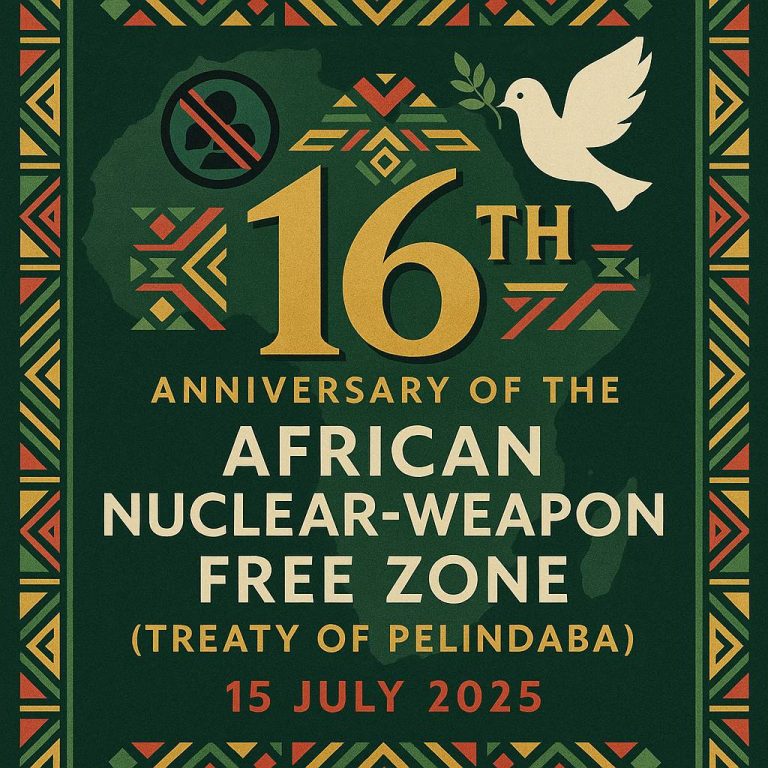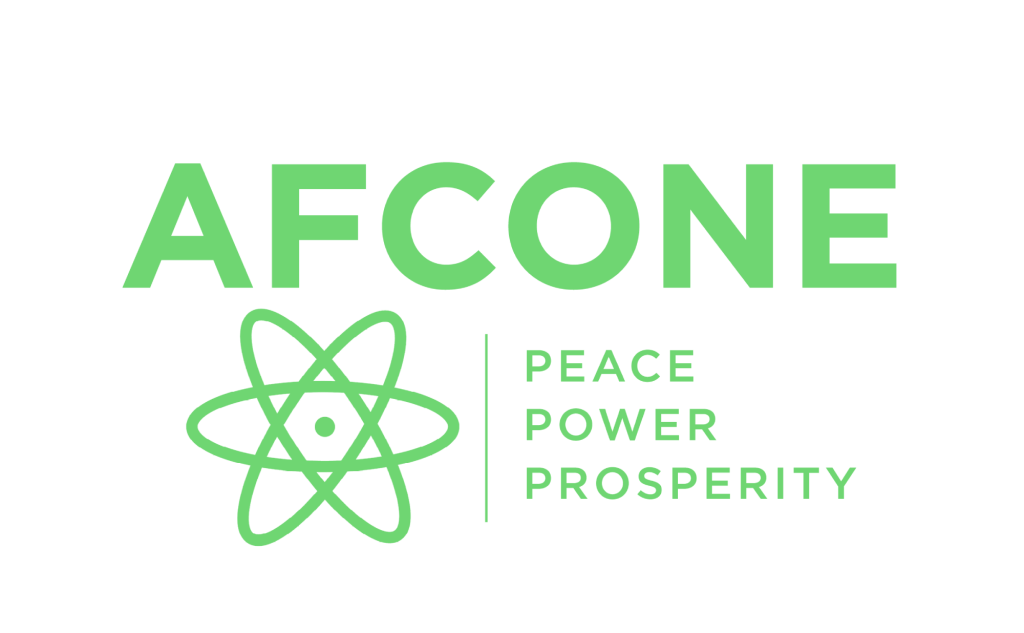The African Nuclear-Weapon Free Zone Treaty (Treaty of Pelindaba) is the centrepiece of Africa’s commitment to exclusively peaceful, safe and secure utilization of nuclear energy for development and prosperity; and frames the continent’s commitment to advancing disarmament and non-proliferation.
The treaty established the African Commission on Nuclear Energy (AFCONE) as an autonomous inter-governmental African organization to oversee the implementation of the treaty, with the Conference of States Parties to the treaty as the supreme governance organ of AFCONE. The treaty currently has a membership of 44 African states parties[1].
The United States, Russia, United Kingdom, France and China, which are nuclear-weapons States (NWS) under the NPT, also have obligations under the treaty – To not develop, station, use or test nuclear explosives within the African Nuclear-Weapon Free Zone (ANWFZ).
Celebrating the treaty is a reminder that now is as good a time as any to continue striving (deliberately and proactively) to sustainably and independently have more access to the benefits of nuclear energy in Africa. Considering the rising interest in civil nuclear applications in Africa, including the increasing number of nuclear power embarking African states, it is high time to prioritize the development of nuclear infrastructure issues, including ramping up the implementation of the Treaty of Pelindaba.
Responsible utilization of nuclear energy requires strict international, regional and domestic control, to ensure nuclear safety, security and safeguards, as well as radiological and environmental protection. The Treaty of Pelindaba encompasses all these issues in Africa. Hence, the potential importance of the treaty in any future and further developments of nuclear energy in Africa.
The Treaty of Pelindabatakes its name from the place where the Republic of South Africa developed nuclear weapons in the 1970s and 80s. There’s a certain poetic justice to this name, because PELINDABA is a Zulu word that means, “End of the story or the conclusion”, which may be read to signify the conclusion of the contentious apartheid era, as well as the final decision to keep Africa free of nuclear weapons (after nuclear weapons testing that France carried out in Algeria in the early 1960s). The treaty applies to the territories of all African States, including all land holdings, internal waters, territorial seas, archipelagic waters, the airspace above them, as well as the seabed and subsoil beneath. A dispute had existed over the inclusion in the ANWFZ of the Chagos Archipelago (British Indian Ocean Territory), however, on 22 May 2025, the British government signed a deal to transfer sovereignty to Mauritius.
The Treaty of Pelindaba has its origins in the first summit of African heads of state and government in Cairo, Egypt, on 17 – 21 July 1964, which adopted the Cairo Declaration (the Declaration on the denuclearization of Africa), declaring the continent’s readiness to undertake, through an international agreement, not to manufacture or acquire control of nuclear weapons.
There was no progress on the Cairo declaration until after the Republic of South Africa gave up its nuclear weapons programme in 1989 and signed the NPT (Treaty on the Non-Proliferation of Nuclear Weapons) on 10 July 1991. After that breakthrough, progress was swift; the draft text of the African Nuclear-Weapons Free Zonetreaty was approved by African Heads of State in 1995; and the 1964 Cairo declaration eventually came to fruition (almost a half century later) on 15 July 2009 when the Treaty of Pelindaba entered into force.
Article 17 of the Treaty of Pelindaba stipulates that the treaty shall be of unlimited duration and shall remain in force indefinitely. However, the continued relevance of the treaty, and its fitness for purpose in advancing peace, security and development in Africa will depend largely on the commitment of states parties to support the treaty and to ensure good governance in its implementation.
[1] Algeria, Angola, Benin, Botswana, Burkina Faso, Burundi, Cameroon, Cape Verde, Chad, Comoros, Republic of Congo, Cote d’Ivoire, Democratic Republic of Congo, Equatorial Guinea, Eswatini, Ethiopia, Gabon, Gambia, Ghana, Guinea-Bissau, Guinea, Kenya, Lesotho, Libya, Madagascar, Malawi, Mali, Mauritania, Mauritius, Morocco, Mozambique, Namibia, Niger, Nigeria, Rwanda, Sahrawi Arab Democratic Republic, Senegal, Seychelles, South Africa, Togo, Tunisia, Tanzania, Zambia, Zimbabwe.



